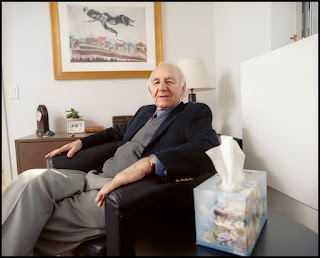Research Blog #10: Abstract and Works Cited
Abstract
This research paper explores the déjà vu phenomenon in-depth and its relation to anxiety, while also explaining how certain factors can have an effect on an individual’s déjà vu experiences. To better understand the déjà vu phenomenon, this paper seeks to find the various explanations of why déjà vu occurs and looks at research on the déjà vu phenomenon to better understand how déjà vu can impact individuals as well as the unconscious mind. This paper sheds light on the harmful effects déjà vu can have on individuals with certain psychological disorders such as anxiety, and the possibility that their experience could be taken as a warning sign, proving that déjà vu plays a significant factor in an individual’s life. This paper further discusses the idea that the memory of dreams plays a role in déjà vu, meaning that déjà vu not only affects individuals while awake but also while asleep.
Works Cited
Brown, Alan S. and Elizabeth J. Marsh. “Digging into Déjà Vu: Recent Research on Possible Mechanisms.” Psychology of Learning and Motivation, Academic Press, 19 May 2010, www.sciencedirect.com/science/article/pii/S0079742110530020?via%3Dihub.
Brown, Alan S. (2004). The Déjà Vu Experience. New York, NY: Psychology Press.
Colorado State University. “Déjà Vu and Feelings of Prediction: They're Just Feelings.” ScienceDaily, ScienceDaily, 1 Mar. 2018, www.sciencedaily.com/releases/2018/03/180301125046.htm.
Devinsky, Orrin et al. “Hyperfamiliarity for Faces.” Neurology, vol. 74, no. 12, Lippincott Williams & Wilkins, 2010, pp. 970–74, doi:10.1212/WNL.0b013e3181d5dc22.
“Facts & Statistics: Anxiety and Depression Association of America.” Facts & Statistics: Anxiety and Depression Association of America, ADAA, adaa.org/understanding-anxiety/facts-statistics.
Hurvich, Marvin. “Classics Revisited : The Ego in Anxiety (Max Schur, 1953) and, an Addendum to Freud’s Theory of Anxiety (Charles Brenner, 1953).” Psychoanalytic Review (1963), vol. 84, no. 4, Guilford, 1997, pp. 483–521.
Moulin, Chris J. A. The Cognitive Neuropsychology of Déjà Vu . Routledge, an imprint of the Taylor & Francis Group, 2018.
Raypole, Crystal. “What Causes Déjà Vu?” Healthline, 30 Mar. 2020, www.healthline.com/health/mental-health/what-causes-deja-vu#causes.
Reed, Gail S. “Unconscious Fantasy in Context: The Work of Jacob A. Arlow.” International Journal of Psychoanalysis, vol. 98, no. 3, Routledge, 2017, pp. 821–30, doi:10.1111/1745-8315.12584.
Wells, Christine E et al. “Persistent Psychogenic Déjà Vu: a Case Report.” Journal of Medical Case Reports, 8 Dec. 2014.
Wells, Christine E et al. “Déjà vu experiences in anxiety.” Memory (Hove, England), 1 Nov. 2018.
“What Exactly Is Déjà Vu?” Scientific American, Scientific American, 13 May 2002, www.scientificamerican.com/article/what-exactly-is-dj-vu/.

Comments
Post a Comment